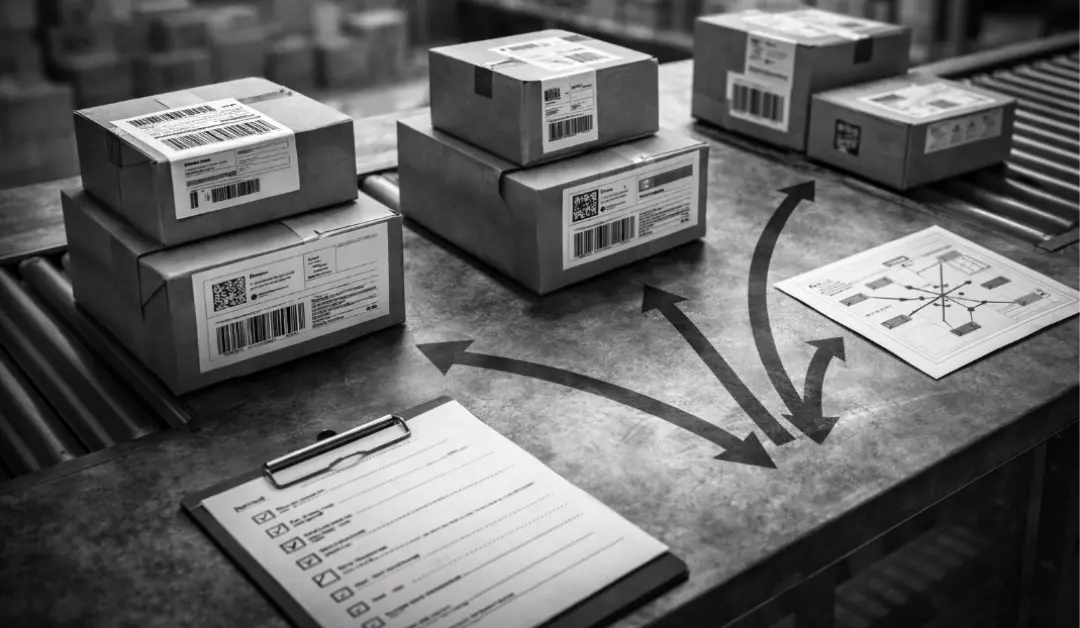Introduction
In the fast-paced world of modern business, efficient supply chain management is crucial for success. One term that frequently surfaces in logistics and supply chain discussions is “3PLs.” But what exactly are 3PLs, and why are they so important? This article delves into Third-Party Logistics Providers to understand their role and significance in commerce.
What Are 3PLs?
Defining Third-Party Logistics Providers
At its core, a Third-Party Logistics Provider is a company that specializes in offering logistics and supply chain management services to other businesses. These services range from warehousing and distribution to transportation management, inventory control, and more. 3PLs serve as external partners that help companies to streamline their supply chain operations efficiently.
The Evolution of 3PLs
To fully comprehend the significance of 3PLs, let’s briefly explore their historical background and evolution. Outsourcing logistics and transportation functions to third parties dates back to the mid-20th century. However, it wasn’t until the 1970s and 1980s that the term “Third-Party Logistics” gained widespread recognition.
As globalization and e-commerce transformed the business landscape, the demand for specialized logistics services multiplied. This evolution led to the emergence of various third-party logistics providers, each offering a specific set of services tailored to the unique needs of businesses across industries.
Core Functions of 3PLs
Now that we have a foundational understanding of 3PLs let’s explore their core functions and services further.
1. Warehousing and Distribution
Warehousing is a critical component of the supply chain. Third-party logistics providers maintain warehouses and distribution centers where they store and manage inventory on behalf of their clients. This includes tasks like order fulfillment, packing, labeling, and shipping. By outsourcing warehousing to a 3PL, businesses can reduce the cost and complexity of managing their storage needs.
Efficient distribution is equally essential. Third-party logistics providers ensure that products are delivered to their intended destinations promptly, helping businesses meet customer demands effectively.
2. Transportation Management
Transportation logistics can be complex, involving multiple carriers, routes, and modes of transportation. 3PLs excel in this arena by selecting carriers, optimizing shipping routes, and coordinating the movement of goods. Whether goods must be transported by truck, air, rail, or sea, third-party logistic providers have the expertise to make it happen seamlessly.
3. Inventory Management
Inventory control is a delicate balance between having enough stock to meet demand without overstocking and incurring unnecessary carrying costs. 3PLs help businesses optimize stock levels, minimize carrying costs, and reduce the risk of stockouts, ensuring products are readily available when customers need them.
4. Order Fulfillment
Processing customer orders accurately and efficiently is vital for customer satisfaction. 3PLs handle all aspects of order fulfillment, including picking, packing, and shipping. Additionally, they manage returns and oversee the reverse logistics process.
5. Technology and Software
Modern 3PLs offer robust technology solutions and software platforms that give clients real-time visibility into their supply chain operations. These tools help businesses track shipments, manage inventory, and make informed decisions based on data analytics.

Advantages of Utilizing 3PL Services
Now that we have a clear picture of the services offered by third-party logistic providers, let’s explore why businesses choose to partner with them.
1. Improved Efficiency
3PLs are pivotal in streamlining supply chain operations, reducing bottlenecks, and optimizing processes. By outsourcing logistics functions to experts, businesses can focus on their core activities, ultimately improving efficiency and productivity.
2. Cost Reduction
Maintaining large warehouses, fleets of trucks, and skilled logistics personnel can be expensive. 3PLs allow businesses to eliminate the need for massive infrastructure investments. Through economies of scale and efficient resource allocation, 3PLs can often deliver cost savings.
3. Scalability
Businesses face fluctuations in demand, seasonal peaks, and market fluctuations. 3PLs offer scalability, allowing companies to adapt to these changes effectively. Whether it’s handling a surge in orders during the holiday season or scaling down during slower periods, third-party logistics providers offer flexibility.

Types of 3PL Providers
It’s worth noting that 3PLs come in various forms, each with unique characteristics.
Asset-Based 3PLs
Asset-based 3PLs own and operate their transportation and warehousing assets, such as trucks and warehouses. They have direct control over their resources, which can lead to more predictable service levels.
Non-Asset-Based 3PLs
On the other hand, non-asset-based logistics providers do not own physical assets. Instead, they leverage their extensive network of carriers and warehouses to provide logistics services. This flexibility allows them to tailor solutions to meet specific client needs.
Freight Forwarders vs. 3PLs
Freight forwarders are a subset of third-party logistics (3PLs) that specialize in arranging goods transportation on their clients’ behalf. While freight forwarders focus primarily on transportation, 3PLs typically offer a broader range of logistics services, including warehousing and inventory management.
Choosing the Right 3PL Partner
Selecting the right 3PL partner is a critical decision for businesses. Here are some factors to consider when making this choice:
– Expertise: Look for a 3PL provider with expertise in your industry or niche.
– Technology: Ensure the third-party logistics partner offers modern technology solutions to improve supply chain visibility.
– Flexibility: Assess their ability to adapt to your changing needs and seasonal fluctuations.
– References: Ask for references and case studies to gauge their track record.
Conclusion
In modern business, 3PLs have become invaluable partners in ensuring efficient supply chain management. Their expertise in warehousing, distribution, transportation, inventory management, and technology solutions profoundly impacts businesses’ efficiency, cost reduction, and scalability. As you navigate the complex world of logistics, consider the role that a trusted 3PL can play in streamlining.




